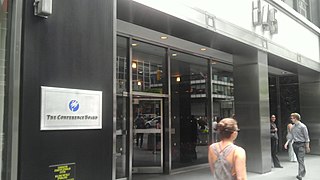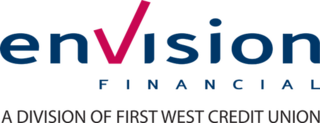This article has multiple issues. Please help improve it or discuss these issues on the talk page . (Learn how and when to remove these template messages)
|
This article has multiple issues. Please help improve it or discuss these issues on the talk page . (Learn how and when to remove these template messages)
|
Best Employers in Canada is an annual study that ranks organizations found to have created positive work environments. It is open to any employer that has done business in Canada for at least three years and has at least 50 Canadian-based employees.
A key aspect of the study is to identify and rank Canadian companies based the "engagement" level of employees. Engagement is a term used to define how good employees feel about their employer generally, how likely they are to stay with the company voluntarily, and how motivated they are by their leaders, managers, company culture and values to contribute to the company's success.
The Best Employers study analyses data gathered from employees, company leaders, and HR leaders. The study's signature feature is that it conducts extensive employee polling to determine how the employees themselves feel about the companies for whom they work.
This annual award is organized by the human resources consulting firm, AON Hewitt. It's not known how many of the organizations on the annual list are clients of the firm.
Participating organizations agree to a three part measurement exercise:
A cross-section of employees is tapped for the Employee Opinion Survey, which is typically conducted in census format, i.e., all employees are invited to respond. Leaders complete a separate survey on an individual basis and the Human Resources team completes the practice questionnaire as a group.
Data is analyzed based on academically endorsed methods and findings are released annually in October. Results are published in English in MacLean's magazine under the name "Best Employers in Canada". Results are published in French in La Presse newspaper under the name "Employeurs de choix au Canada".
The overall Best Employers in Canada Study generates several sub-lists including Best Employers in Quebec, Best Employers in the GTA, and the Green 30. It is conducted annually and is sponsored by Aon Hewitt, and the National Quality Institute. It is open to organizations that have operated in Canada for at least three years, and have between 50 and 399 permanent Canadian-based employees. Survey methodology is similar to that of the Best Employers in Canada study. Results are published annually in Profit magazine.

Aon plc is a global professional services firm that offers a range of risk-mitigation products. Aon has approximately 50,000 employees across 120 countries.
Organisational climate is a concept that has academic meaning in the fields of organisational behaviour and I/O psychology as well as practical meaning in the business world There is continued scholarly debate about the exact definition of organisational climate for the purposes of scientific study. The definition developed by Lawrence R. James (1943-2014) and his colleagues makes a distinction between psychological and organisational climate.
"Psychological climate is defined as the individual employee’s perception of the psychological impact of the work environment on his or her own well-being. When employees in a particular work unit agree on their perceptions of the impact of their work environment, their shared perceptions can be aggregated to describe their organisational climate ."
The Corporate Equality Index is a report published by the Human Rights Campaign Foundation as a tool to rate American businesses on their treatment of gay, lesbian, bisexual and transgender employees, consumers and investors. Its primary source of data are surveys but researchers cross-check business policy and their implications for LGBT workers and public records independently. The index has been published annually since 2002. Additionally, the CEI focuses on the positive associations of equality promoting policies and LGBT supporting businesses which has developed to reflect a positive correlation between the promotion of LGBT equality and successful organizations. Following the top 100 corporations that are publicly ranked under the CEI, participating organizations remain anonymous. For businesses looking to enforce and expand LGBT diverse and inclusive policies, the CEI provides a framework that allows businesses to recognize and address issues and policies that restrict equality for LGBT people in the workplace.

The Conference Board, Inc. is a 501(c)(3) non-profit business membership and research group organization. It counts over 1,000 public and private corporations and other organizations as members, encompassing 60 countries.

Employee engagement is a fundamental concept in the effort to understand and describe, both qualitatively and quantitatively, the nature of the relationship between an organization and its employees. An "engaged employee" is defined as one who is fully absorbed by and enthusiastic about their work and so takes positive action to further the organization's reputation and interests. An engaged employee has a positive attitude towards the organization and its values. In contrast, a disengaged employee may range from someone doing the bare minimum at work, up to an employee who is actively damaging the company's work output and reputation.
Workplace wellness, also known as corporate wellbeing outside the United States, is a broad term used to describe activities, programs, and/or organizational policies designed to support healthy behavior in the workplace. This often involves health education, medical screenings, weight management programs, and onsite fitness programs or facilities. It can also include flex-time for exercise, providing onsite kitchen and eating areas, offering healthy food options in vending machines, holding "walk and talk" meetings, and offering financial and other incentives for participation.

Gallup, Inc. is an American multinational analytics and advisory company based in Washington, D.C. Founded by George Gallup in 1935, the company became known for its public opinion polls conducted worldwide. Gallup provides analytics and management consulting to organizations globally. In addition the company offers educational consulting, the CliftonStrengths assessment and associated products, and business and management books published by its Gallup Press unit.
The human resource consulting industry has emerged from management consulting and addresses human resource management tasks and decisions.
A chief human resources officer (CHRO) or chief people officer (CPO) is a corporate officer who oversees all aspects of human resource management and industrial relations policies, practices and operations for an organization. Similar job titles include: chief people officer, chief personnel officer, executive vice president of human resources and senior vice president of human resources. Roles and responsibilities of a typical CHRO can be categorized as follows: workforce strategist, organizational and performance conductor, HR service delivery owner, compliance and governance regulator, and coach and adviser to the senior leadership team and the board of directors. CHROs may also be involved in board member selection and orientation, executive compensation, and succession planning. In addition, functions such as communications, facilities, public relations and related areas may fall within the scope of the CHRO role. Increasingly, CHROs report directly to chief executive officers and are members of the most senior-level committees of a company.

Envision Financial, a division of First West Credit Union, is based in British Columbia, Canada. Founded in 1946, Envision Financial was established in 2001 through a merger between Lower Mainland-based Delta Credit Union, whose roots were in the fishing industry, and Fraser Valley-based First Heritage Savings Credit Union, which had historic ties to the farming and agriculture industries. First Heritage Savings Credit Union was the product of a merger between East Chilliwack Credit Union and Clearbrook District Mennonite Savings Credit Union in 1983. It is insured by the Credit Union Deposit Insurance Corporation of British Columbia.
An exit interview is a survey conducted with an individual who is separating from an organization or relationship. Most commonly, this occurs between an employee and an organization, a student and an educational institution, or a member and an association. An organization can use the information gained from an exit interview to assess what should be improved, changed, or remain intact. More so, an organization can use the results from exit interviews to reduce employee, student, or member turnover and increase productivity and engagement, thus reducing the high costs associated with turnover. Some examples of the value of conducting exit interviews include shortening the recruiting and hiring process, reducing absenteeism, improving innovation, sustaining performance, and reducing possible litigation if issues mentioned in the exit interview are addressed.
Enterprise engagement is a sub-discipline of marketing and management that focuses on achieving long-term financial results by strategically fostering the proactive involvement and alignment of customers, distribution partners, salespeople, and all human capital outside and inside of an organization. Enterprise engagement is distinct from the traditional sub-disciplines of financial management, marketing, sales, operations, and human resources in that it seeks to achieve long-term success by integrating these various traditional business disciplines to consistently focus the organization on identifying and meeting target audience needs. Enterprise Engagement is related to brand engagement, a term developed in Great Britain in the 2000s to describe an integrated external and internal marketing approach to achieving long-term success for a brand. Enterprise Engagement applies similar principals to the achievement of an organization's overall financial objectives.
Employee surveys are tools used by organizational leadership to gain feedback on and measure employee engagement, employee morale, and performance. Usually answered anonymously, surveys are also used to gain a holistic picture of employees' feelings on such areas as working conditions, supervisory impact, and motivation that regular channels of communication may not. Surveys are considered effective in this regard provided they are well-designed, effectively administered, have validity, and evoke changes and improvements.
Employee retention is the ability of an organization to retain its employees and ensure sustainability. Employee retention can be represented by a simple statistic. Employee retention is also the strategies employers use to try to retain the employees in their workforce.
Employer brand is branding and marketing the entirety of the employment experience. It describes an employer's reputation as a place to work, and their employee value proposition, as opposed to the more general corporate brand reputation and value proposition to customers. The term was first used in the early 1990s, and has since become widely adopted by the global management community. Minchington describes employer brand as "the image of your organization as a 'great place to work' in the mind of current employees and key stakeholders in the external market. The art and science of employer branding is therefore concerned with the attraction, engagement and retention initiatives targeted at enhancing your company's employer brand."

Aon Hewitt was a provider of human capital and management consulting services headquartered in Lincolnshire, Illinois in the United States. From 500 offices in 120 countries, it provided consulting, outsourcing, and reinsurance brokerage services. The "Aon Hewitt" brand and legal entities have now been absorbed into the "Aon" business, leaving obsolete the names "Hewitt" and "Aon Hewitt."
Employee motivation is an intrinsic and internal drive to put forth the necessary effort and action towards work-related activities. It has been broadly defined as the "psychological forces that determine the direction of a person's behavior in an organisation, a person's level of effort and a person's level of persistence". Also, "Motivation can be thought of as the willingness to expend energy to achieve a goal or a reward. Motivation at work has been defined as 'the sum of the processes that influence the arousal, direction, and maintenance of behaviors relevant to work settings'." Motivated employees are essential to the success of an organization as motivated employees are generally more productive at the work place.
The Sovereign General Insurance Company, operating as Sovereign Insurance, is a Canadian property and casualty insurance company specializing in commercial lines. They offer full-service branches across Canada, including Vancouver, Calgary, Winnipeg, Toronto, Montreal and Halifax.
BuildDirect is a technology company headquartered in Vancouver, British Columbia. It is an online marketplace for heavyweight home improvement products. The company was founded in 1999 by Jeff Booth and Rob Banks, and connects buyers with sellers. Categories include, but are not limited to, flooring, tile, decking, building materials, outdoor, kitchen & bath, molding & accessories and doors.
The American Benefits Council (the Council) is a national trade association based in Washington, D.C. that advocates for employer-sponsored benefit plans. The Council's members represent the private employee benefits community and either sponsor directly or provide services to retirement and health benefit plans both nationally and internationally.